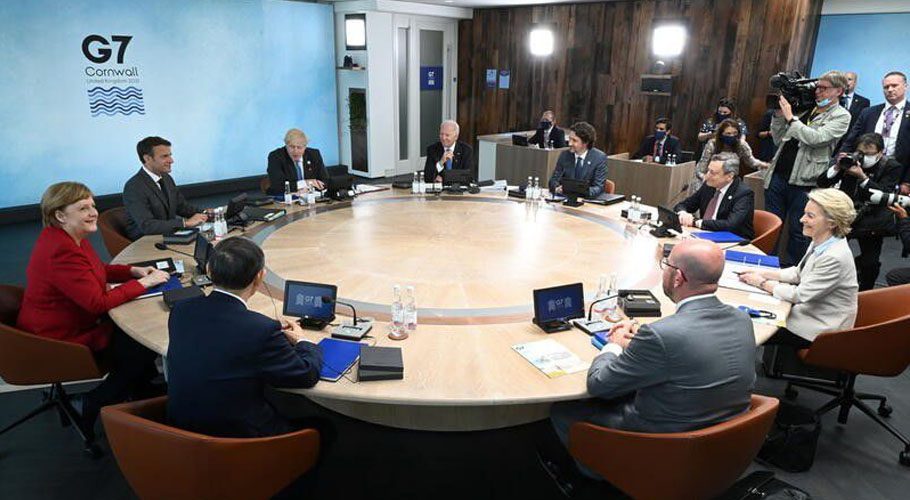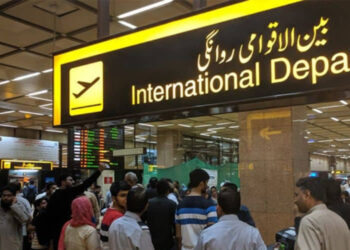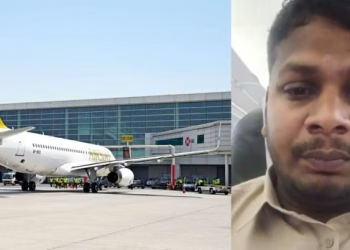LONDON: G7 leaders were greeted by Britain’s Queen Elizabeth after opening their first in-person talks in nearly two years, touting an expected pledge to donate one billion Covid-19 vaccine doses to poor countries.
The club of leading economies — Britain, Canada, France, Germany, Italy, Japan and United States — say a joint approach is the world’s best chance for recovering from the global health crisis and tackling climate change.
British Prime Minister Boris Johnson welcomed them to the beachside summit venue in Carbis Bay, southwest England, the leaders posed for a family photo before opening their first session of talks on “building back better” after the pandemic.
Later Friday, the queen, Prince Charles and his wife Camilla, and the Duke and Duchess of Cambridge met the G7 leaders at a reception at Cornwall’s Eden Project, an exhibition that showcases the world’s ecological riches.
The three-day G7 meeting presents a “huge opportunity” for global recovery after Covid-19, Johnson told his fellow leaders in opening remarks earlier, as they sat socially distanced and without masks at a round table.
The summit will focus, he said, on “building back greener, building back fairer and building back more equal”, with an emphasis on gender equality. The G7 will also agree a new joint health pact — the Carbis Bay Declaration — to ensure “never again will we be caught unawares”, Johnson announced late Friday.
Its commitments include cutting the time taken to develop and license vaccines, treatments and diagnostics for any future disease to under 100 days. The declaration will be published on Sunday alongside the traditional final communique.
READ MORE: British PM hails Biden as ‘a big breath of fresh air’
US President Joe Biden earlier set a unifying tone to give a message of resolve by the G7 and NATO against both Beijing and Moscow. He heads into his first sit-down with Russian President Vladimir Putin next week in Geneva.
“I’m looking forward to reinforcing our commitment to multilateralism and working with our allies and partners to build a more fair and inclusive global economy,” Biden tweeted from the G7 in Cornwall.
However, campaigners say the G7 has so far failed to rise to the challenge posed by the pandemic, which has claimed over 3.7 million lives worldwide and is still spawning new variants.
Critics claim its vaccine donations pledge for this year and next — including 500 million US doses — is far too little, too late. David Nabarro, the British special envoy on Covid-19 for the World Health Organization, said the pledges were “too slow”.
UN Secretary-General Antonio Guterres insisted vaccines “should be considered as global public goods… available and affordable for all”. “It’s in the interest of everybody that everybody gets vaccinated, sooner rather than later,” he told reporters.
The G7 wants to rise to competing “vaccine diplomacy” efforts launched by China and Russia, with the Biden administration stressing it expects nothing in return for its donated jabs.
The leaders are also expected to outline more help for developing nations to build up infrastructure, as a counterpoint to the debt-fuelled spending by China in Africa, Asia and Latin America.

Biden and Johnson on Thursday adopted a new “Atlantic Charter”, modelled on the pact signed by their World War II predecessors to help build a new world order.
Johnson played down any differences with Biden over the restive British province of Northern Ireland, ahead of showdown talks with EU chiefs on Saturday to tackle deep fissures opened up by Brexit.
Safeguarding global biodiversity is another G7 theme this weekend, with the leaders set on an agreement to protect at least 30 percent of the world’s land and oceans by 2030.
They will also debate aiding poorer nations to transition out of fossil fuels, in the build-up to the UN’s COP26 climate summit in November in Scotland.
Like the G7, Britain wants COP26 to be held in-person, and announced that it plans to offer vaccinations to delegates from poorer nations if they cannot get them otherwise.
The G7 is also expected to adopt a plan to ensure schooling for another 40 million girls by 2025 after the pandemic destroyed educational opportunities around the world.





































